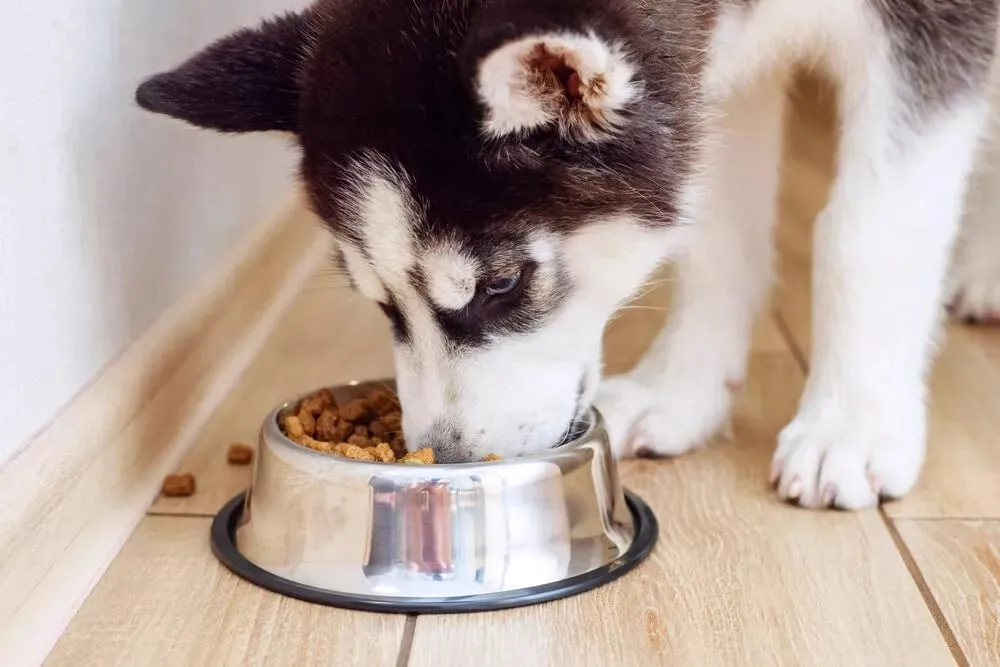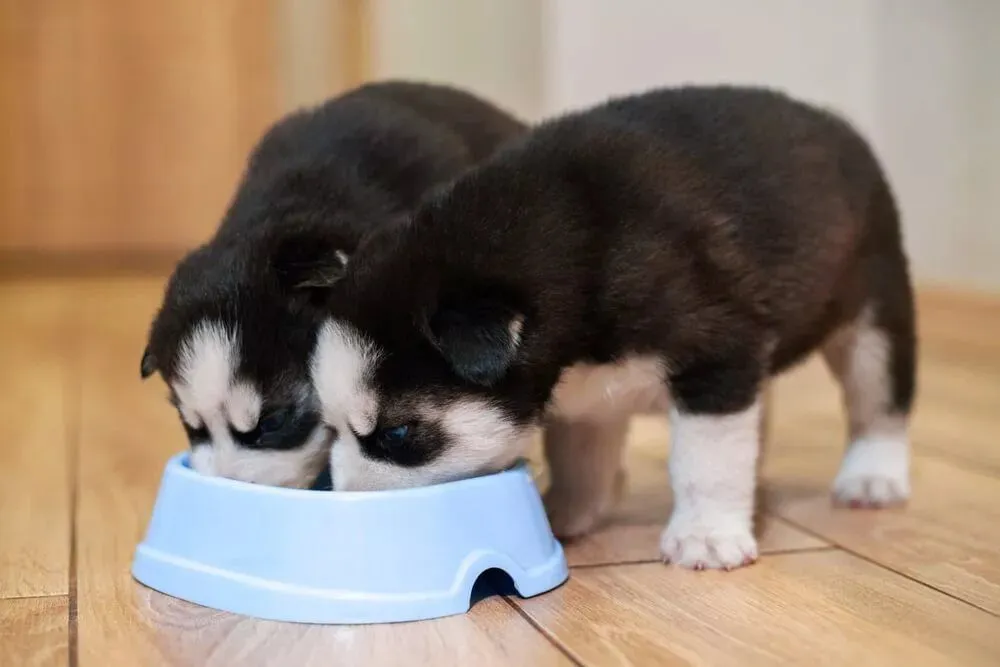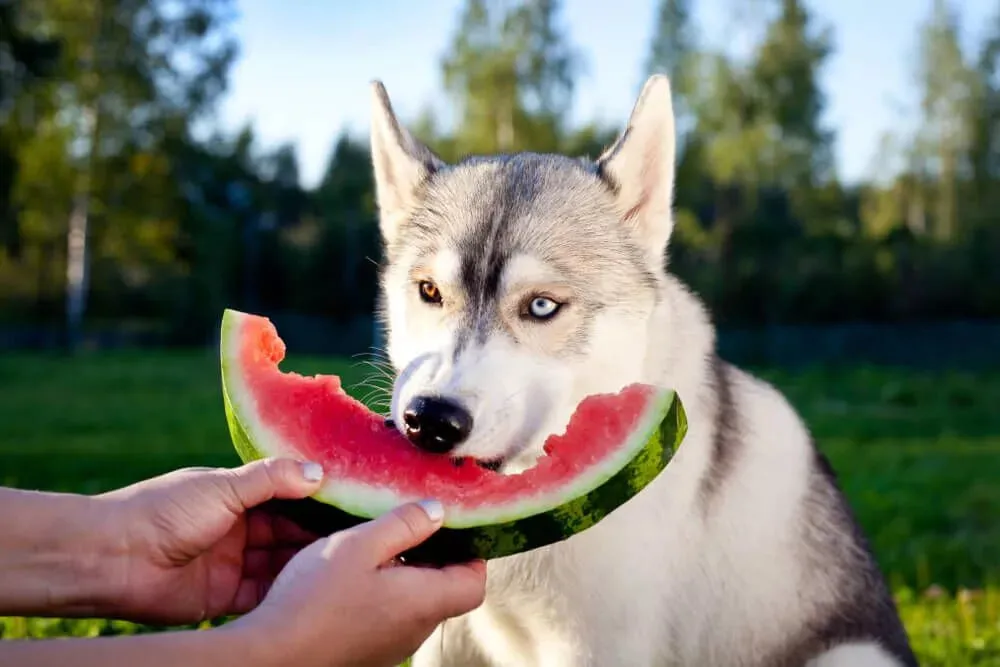Siberian Huskies are intelligent, playful, and adventurous dogs, renowned for their strength, speed, and endurance. To maintain their high energy levels and overall health, providing the right diet is crucial. This guide will explore what a Husky needs from their diet, the best foods to offer, and what should be avoided. We’ll also touch on what they might eat in the wild and beyond commercial dog food.
Understanding the unique dietary needs of your Husky ensures they receive optimal nutrition, supporting their active lifestyle and preventing health issues. From specific macronutrient requirements to essential vitamins and minerals, a well-balanced diet is the cornerstone of a healthy and happy Husky.
The Ancestral Diet: What Wild Siberian Huskies Eat
Huskies originated in Siberia, where the indigenous Chukchi people relied on them for pulling sleighs and guarding land. As one of the oldest dog breeds, domesticated over 4000 years ago, Huskies have a long history alongside humans. In the wild, however, they are opportunistic feeders, consuming whatever is available, from scraps and garbage to live prey. They possess a strong prey drive, leading them to hunt, kill, and eat small wildlife. Their wild diet also includes vegetation and wild fruits, as well as the contents of herbivore stomachs (such as rodents and rabbits), providing essential fiber and dietary variety.
However, a Husky living as a family pet has different dietary requirements compared to those residing in the cold climates of Siberia or Antarctica. Pet Huskies are typically less active and expend fewer calories to keep warm, meaning their nutritional needs must be tailored to their domestic lifestyle. Despite being a large and active breed, Huskies often require a relatively small amount of food compared to other dogs of similar size, due to their naturally slow metabolism. Regular exercise is essential, not only for burning off energy but also for stimulating their appetite. what type of food do husky dogs eat
 A majestic Siberian Husky standing proudly in a snowy landscape
A majestic Siberian Husky standing proudly in a snowy landscape
Essential Components of a Husky’s Diet
The amount of food your Husky needs varies based on their size, age, and activity levels. There are many feeding options available, including high-quality commercial wet and dry foods, home-cooked diets, and raw foods. Regardless of the choice, any well-balanced and nutritionally complete diet must include several key components to ensure your Husky thrives.
Protein: Building Blocks for Health
Huskies generally thrive on a high-protein diet, with most of their protein ideally sourced from meat. Protein is fundamental for a healthy coat and skin, robust muscle development, tissue repair, and acts as a vital energy source. Excellent protein sources include meats such as chicken, beef, turkey, lamb, and duck, along with fish. Organ meats and animal by-products like heart, liver, kidneys, and lungs are also highly nutritious sources of animal protein. Certain grains and oilseeds, such as soybeans, can also contribute good protein.
 A close-up shot of dry dog food kibble with various ingredients
A close-up shot of dry dog food kibble with various ingredients
Protein is not just for muscle; it’s essential for a gleaming coat and healthy skin, enabling tissue repair and serving as a crucial energy supply for your active companion.
Fats: Concentrated Energy
Fats and oils are an indispensable part of a balanced diet for dogs. They are a concentrated form of energy, providing more than twice the energy of carbohydrates and proteins—a critical factor for fueling your Husky’s characteristic high energy! Fats also play a vital role in maintaining the health of your dog’s cells, nerves, muscles, and tissues, and they aid in the absorption of fat-soluble vitamins (A, D, E, and K).
Fats are composed of fatty acids. Essential fatty acids, which dogs cannot produce themselves and must obtain from their diet, include omega-3 and omega-6 fatty acids. Common sources of omega-3s are fish oils (herring, salmon), flaxseed, and canola oils. Omega-6 fatty acids can be found in pork fat, chicken fat, sunflower, and other vegetable oils.
Carbohydrates: An Energy Boost
Carbohydrates, such as grains, potatoes, tapioca, and legumes, are good energy sources for dogs. They are generally safe for Huskies unless your dog has a known dietary intolerance. While dogs are primarily carnivores and can derive much of their energy from protein and fats, carbohydrates can be an excellent way to provide an additional energy boost to your Husky’s diet. It’s important to select easily digestible carbohydrates to prevent digestive upset.
Fruits and Vegetables: Fiber, Vitamins, and Minerals
Fruits and vegetables are exceptional sources of dietary fiber, which helps maintain the health of your dog’s gastrointestinal system. Consuming fiber-rich foods can aid in preventing various health issues like diabetes, obesity, constipation, and colitis. Beyond fiber, fruits and vegetables are packed full of essential vitamins and minerals that contribute to keeping your canine friend fit and healthy.
 A vibrant assortment of fresh fruits and vegetables in a bowl, healthy for dogs
A vibrant assortment of fresh fruits and vegetables in a bowl, healthy for dogs
Supplementing your Husky’s diet with fresh fruits and vegetables can provide vital nutrients, helping to maintain overall health and vitality. Ensure you know what veggies can dogs not have and what vegetables can dogs not eat to keep your pet safe.
Huskies are generally considered easy-to-feed dogs, not typically fussy and without specific breed-related dietary intolerances. They require a high-quality protein diet to maintain healthy muscle mass and provide sufficient energy. While supplementing your dog’s diet with home-cooked or human foods can add variety and nutrition, a complete home-cooked diet should generally be avoided unless formulated by a veterinary nutritionist, as it may lack all the essential nutrients your Husky needs. Your Husky’s nutritional requirements are likely to change with their activity levels, age, and life stage, necessitating potential dietary adjustments throughout their life.
What Are the Best Foods to Feed a Husky?
Huskies need a high-protein, nutritious diet that provides enough energy for their active lifestyle and supports healthy muscle and bone development. There isn’t a single “best” diet, and many Husky owners successfully feed a combination of wet and dry dog foods, raw food, or carefully prepared home-cooked meals.
You can supplement your Husky’s diet with fresh meats like chicken, beef, lamb, or fish. These are excellent sources of high-quality protein and can also serve as high-reward training treats. Safe vegetables to add include broccoli, carrots, asparagus, and bell peppers. For fruits, consider bananas, blueberries, apples (without seeds), blackberries, and apricots, which provide variety and essential vitamins and minerals. Always be mindful of what fruits can your dog not eat and what fruits should dogs not eat to prevent accidental toxic exposures.
What Should Huskies Not Eat?
Certain foods are potentially toxic to all dogs and must always be avoided when planning your Husky’s diet. These include:
- Grapes, Raisins, and Prunes
- Chocolate
- Coffee
- Avocado
- Onions
- Garlic
- Citrus fruits
- Stoned fruits (pits can contain cyanide and be a choking hazard)
Conclusion
Providing a balanced and appropriate diet is fundamental to the health and vitality of your Siberian Husky. Understanding their unique needs, from their protein-rich ancestral diet to the specific macronutrients required for their active lifestyle, ensures they receive the best possible care. Always choose high-quality foods and be vigilant about avoiding toxic ingredients. Regular consultation with your veterinarian is highly recommended to tailor your Husky’s diet to their specific age, activity level, and health status, ensuring they lead a long, healthy, and energetic life. Explore more articles on Dog Care Story for further insights into canine nutrition and well-being!
